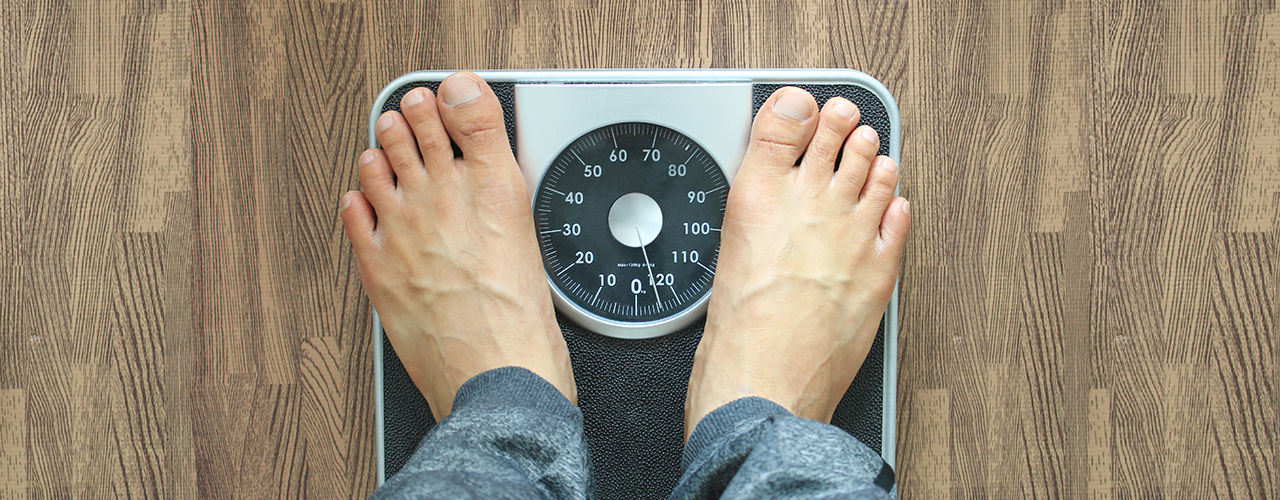Obesity

The stars have aligned. You finally feel like it’s the right time to create a Mini-You. But as the days pass by, you are giving up with your patience as everyone around you is starting a family, you are unable to.
Could those few extra pounds you’re carrying be the reason? Here in this article, we break down the connection between weight and fertility.
What is obesity?
Obesity is a disorder where a person has an excessive amount of body fat. It increases the risk of heart diseases, high blood pressure, diabetes and harms fertility. Couples trying to conceive face challenges when either of them is obese.
What causes obesity?
When a person takes in more calories than what they burn through exercise and physical activities, the body stores the excess calories as fat. Common reasons why obesity occurs include:
• Unhealthy diet: A diet lacking fruits and vegetables, is high in calories, is full of fast food items, has oversized portions and doesn’t include breakfast contributes to weight gain.
• Inactivity: If you don’t burn as many calories as you take in and aren’t very active, you gain weight.
• Pregnancy: During pregnancy, women gain more weight or have a hard time losing the extra weight after the baby is born.
• Medications: Some medications cause an increase in weight, such as antidepressants, diabetes medications, anti-seizure drugs and beta-blockers.
How can I know if I’m obese?
A weight measure calculates your BMI (body mass index) by dividing your weight by the square of your height. A healthy weight is between 18.5 to 24.9 BMI; a 25-29.9 BMI is considered overweight, and a 30 BMI or higher is obese.
How does obesity affect female fertility?
• Obesity can affect a woman’s conception and having a healthy baby. A hormonal balance regulates the menstrual cycle. Overweight and obese women have higher levels of the hormone leptin, produced in fatty tissue. It can disrupt the hormone balance and lead to reduced fertility.
• Body fat affects the menstrual cycle through a range of hormonal mechanisms. The more weight and the more abdominal fat, the greater the risk of fertility difficulties.
• Excess weight or abdominal fat is linked to insulin resistance and decreases sex hormone-binding globulin (SHBG). It is a protein that is involved in the regulation of the sex hormones androgen and oestrogen.
• It increases the risk of irregular menstrual cycles, which in turn reduces fertility.
• Changes in the fine-tuned hormonal balance regulate the menstrual cycle triggered by excess weight. Obesity increases the risk of anovulation. Women with a body mass index (BMI) above 27 have three times fewer conception chances than women in the normal weight range.
• Many women who carry excess weight still ovulate, but it appears the quality of the eggs they produce is low. For women who ovulate, each unit BMI above 29 reduces the chance of achieving a pregnancy within 12 months by about 4%.
• For a woman with a BMI of 35, the likelihood of getting pregnant within a year is 26% lower. And for a woman with a BMI of 40, it is 43% lower than women with a BMI between 21 and 29.
• And when couples use IVF to conceive, the chance of live birth is lower for women who are overweight or obese than for women with normal BMI. On average, compared to women in the healthy weight range, the chance of live birth with IVF is reduced by 9% in women who are overweight and 20% in women who are obese.
Pregnancy/Fetal Risks of Obesity:
• Miscarriage
• Pregnancy-induced hypertension
• Gestational diabetes
• Birth-defects
Excess weight affects male fertility:
For men, obesity is linked to impaired semen quality, decreased libido and erectile dysfunction. Obesity in males makes it tough to conceive and exposes the infant to several health risks before and after birth.
A man’s weight can also affect conception. Being overweight or obese affect sperm health, quality, sexual function, hormone problems, sexual dysfunction, type 2 diabetes and sleep apnoea. Sleep apnoea is associated with lowered testosterone levels and erectile dysfunction.
If a man Carries an extra 10 kilos reduces male fertility by 10%. Studies showing the effects of paternal obesity on the reproductive side found obese men were more likely to experience infertility and less likely to have a live birth if they and their partner used assisted reproduction technology (ART) IVF.
It is because obesity not only reduces sperm quality it also changes the physical and molecular structure of sperm cells.
Male Obesity Risks:
• Erectile dysfunction
• Decreased testosterone
• Sperm production
The good news
While the facts about obesity and fertility seem daunting and haunting, there is some good news too. Weight-loss interventions, including diet and exercise, can promote menstrual cycle regularity and improve pregnancy chances. In obese women with anovulatory infertility, even a modest weight loss of 5-10% improve fertility and conception. If a woman is overweight and planning to get pregnant in the next year, she should start eating healthier and exercising. Losing even a few pounds can make a difference.
A weight loss of 7% of body weight and increased physical activity to at least 150 minutes a week of semi-intensity improve the health and fertility of people who carry excess weight.
Lastly, men and women are twice as likely to make positive health behaviour changes if they cooperate. So becoming pregnant will be more likely if you go through diet and exercise together.
Treating obesity-related infertility
The best way to lose weight is through a healthy diet and physical activity. By eating healthy, nutritious food and being physically active, men and women can experience numerous health and cognitive benefits – including an increased chance of conceiving. Our fertility doctors at GarbhaGudi IVF will guide you, Counsel you and help you attain your dream of parenthood.